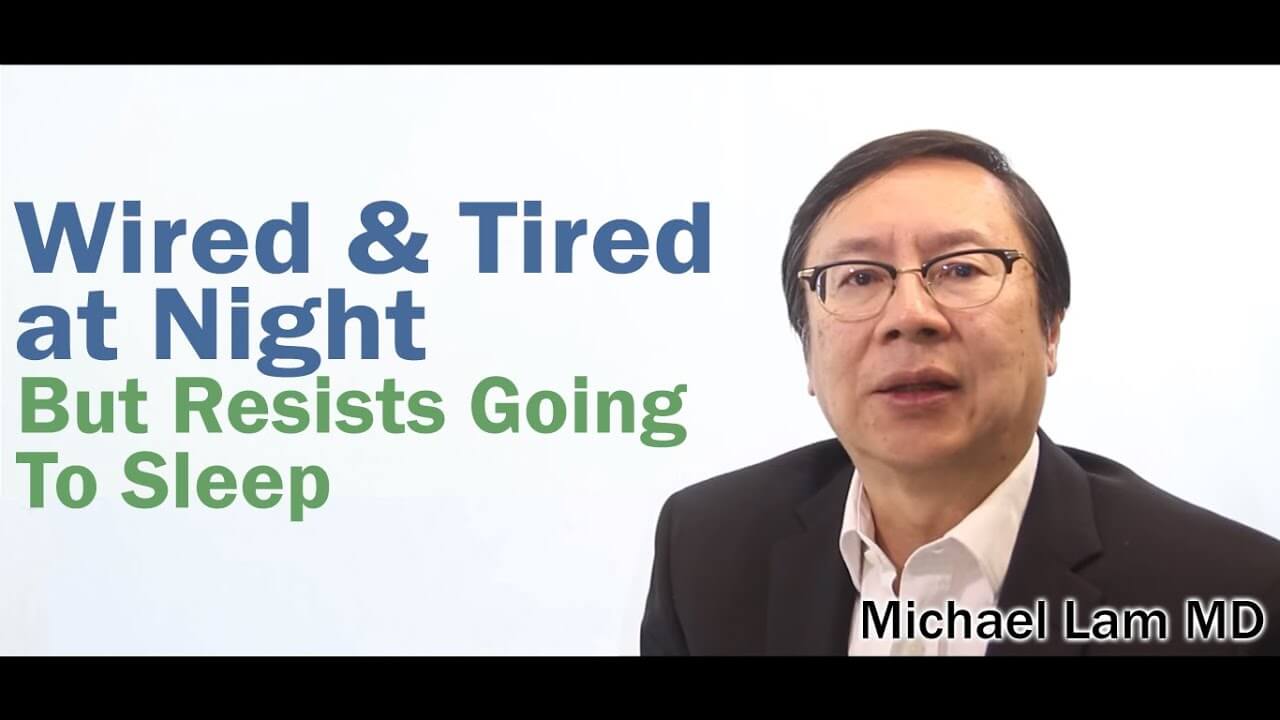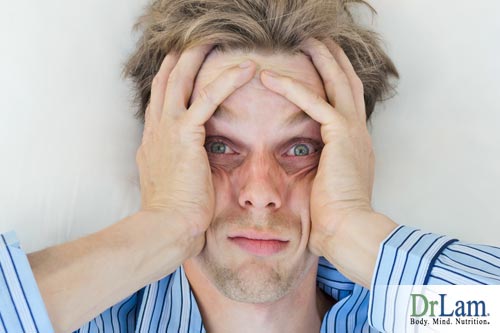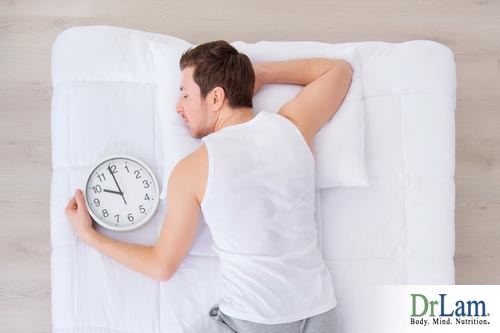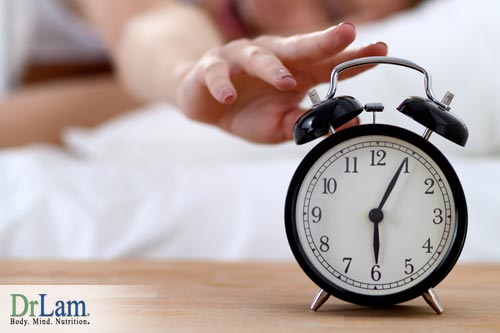
 With the increase in the use of electronic devices and unconventional working hours, sleeping at night is a serious struggle for most of us, despite being tired at the end of the day. You may lay in wonder and ask yourself why can't I sleep? The answer is typically multifactorial and adrenal fatigue syndrome.
With the increase in the use of electronic devices and unconventional working hours, sleeping at night is a serious struggle for most of us, despite being tired at the end of the day. You may lay in wonder and ask yourself why can't I sleep? The answer is typically multifactorial and adrenal fatigue syndrome.
For the ordinary person, after waking up in the morning and going through daily chores, energy levels tend to reduce before mid-morning. Some take a snack to replenish energy while others don’t even notice this energy slump because their bodies automatically rebound. In the afternoon, at around two o’clock, our bodies experience another energy slump due to circadian rhythms. Afternoon tea might help achieve balance to blood sugar. By the day's end, most are exhausted as the body begins winding down after dinner, preparing for the night’s rest.
Most people with adrenal fatigue feel tired throughout the day and are ready for sleep well before nine o’clock in the evening. Unfortunately, they are unable to fall asleep despite their exhaustion, because the day has been packed with stress, which prevents the body from calming down enough to fall asleep. These people often lie wide awake in bed, wondering, "why can't I sleep" due to several physiological factors.
With adrenal fatigue, our bodies’ adrenal systems are typically weak and trying to slow down to conserve energy. When we deprive our bodies of rest throughout the day. Our bodies activate the alarm response to provide a boost of energy. Norepinephrine is released into the body from the sympathetic nervous system and, to some extent epinephrine also known as adrenaline, is pumped out from the center of the adrenals when under stress or attack.
Prescription drugs such as Adderall, amphetamines, and most street drugs use the same concept as norepinephrine by circulating neurotransmitters within our brains, giving rise to the alert response. This alert response makes your heart pounds harder and faster making it impossible to fall asleep despite being exhausted. Norepinephrine is also stimulating the brain and may lead to feeling wired at night. Sleep takes time, but may eventually come once the norepinephrine has burned off and the body calms down.
Understanding sleep onset insomnia (SOI) or being unable to fall asleep, despite being exhausted, is a symptom of an underlying problem. Deep down, that is a reflection of disrupted biological rhythm. Taking sleeping medication or sleeping aids may help symptomatically, but it might mask the underlying problem we may have. However, sleep is of such vital importance to the healing process that, like it or not, sleep medication may be needed to help calm the body down temporarily so that it may rest and recover. This may be especially true in advanced stages of adrenal fatigue.
NEM Stress Response is your body’s way of dealing with stress. However, when the body undergoes chronic stress, the NEM stress response can become deregulated. One of the circuits, that get affected, is the Neuroaffective circuit, which consists of the autonomic nervous system, the central nervous system, and the gastrointestinal system. These three systems play a part in balancing the production and excretion of neurotransmitters, sleep, and mood. When the body’s hormones are imbalanced from adrenal fatigue, these systems also get affected and start acting up. It’s important to be able to calm down and balance all three systems if you want to be able to get to sleep without issues. Proper sleep hygiene is an important aspect of this, and can help you get to sleep faster.
 Manage your screen time because your body’s production of melatonin, a sleep hormone is significantly suppressed by the use of screens before bedtime. Turn off all your social networking and entertainment devices, at least, a good thirty minutes before going to bed, disconnect yourself from smartphone and tablet before bedtime, rid yourself of the on-screen temptations of a bedroom television, and refrain from checking your devices during the night.
Manage your screen time because your body’s production of melatonin, a sleep hormone is significantly suppressed by the use of screens before bedtime. Turn off all your social networking and entertainment devices, at least, a good thirty minutes before going to bed, disconnect yourself from smartphone and tablet before bedtime, rid yourself of the on-screen temptations of a bedroom television, and refrain from checking your devices during the night.
Create a relaxing bedtime environment for yourself. Eliminate all sources of light such as standby lights emitted by your devices, ensure your bedding is comfortable, regulate the temperature in your bedroom to fit the temperature you would desire while sleeping, eliminate or, at least, reduce the level of noise in and around your bedroom, and set restrictions plus boundaries for the use of your bedroom.
Check what you eat and drink before your bedtime. Some foods and drinks provide chemicals that improve our sleep hygiene while other foods and drinks provide our bodies with chemicals that reduce our sleep hygiene. Cherry, bananas, milk and turkey are foods that are good before bedtime since they contribute in different ways towards better sleep and sleeping habits. The foods and drinks to avoid before bedtime include alcohol, coffee, spices, and dark chocolate.
Create and stick to a routine. Set a regular morning alarm time and ensure you stick to it. This will help you to achieve a consistent sleeping pattern. A regular bedtime routine is equally important as a wake-up routine, and substantially contributes towards a better and healthier sleeping pattern. A regular pre-bedtime routine such as light reading, or a long hot bath, will also ensure a better sleep pattern.
Participate in daytime habits that promote sleep. Regular light exercising helps to condition your mind and body towards a better night’s sleep. As much as you should not take any caffeine before bedtime, you should ensure the time in-between is, at least, six hours. Because our bodies rely heavily on balance, it is important to balance between light and dark by exposing your body to sufficient natural light and unless you have to, try hard not to nap during the day.
For those of us who experience restless sleep or cannot fall asleep, some exercise routines might go a long way towards better sleep hygiene. Adrenal breathing exercises activate your parasympathetic nervous system, and calm your body down, allowing you to fall asleep.
By imagining a peaceful, restful, and relaxing environment, you could manipulate your mind to shut down. Tensing your muscles for up to about ten seconds before relaxing, done progressively from your toe muscles, to the top of your head effectively encourages your body into a relaxation response and eventual sleep.
 Lastly, try not to focus your effort on trying to achieve sleep. If you can't fall asleep, don’t keep looking at the alarm clock and stress about not getting enough sleep. Turn off the clock, close your eyes, and breathe.
Lastly, try not to focus your effort on trying to achieve sleep. If you can't fall asleep, don’t keep looking at the alarm clock and stress about not getting enough sleep. Turn off the clock, close your eyes, and breathe.
If your efforts fail, seek the help of an adrenal fatigue literate practitioner and start investigating the root problem. A detailed history often will give many clues to the real problem at the root. Remember that being able to sleep, when medication is on board, is a temporary fix and not a long-term solution, unless you have resigned to take medications long term, which carries along a set of problems such as dependency issues over time. It's best to allow the body to self-heal if possible.
© Copyright 2016 Michael Lam, M.D. All Rights Reserved.

